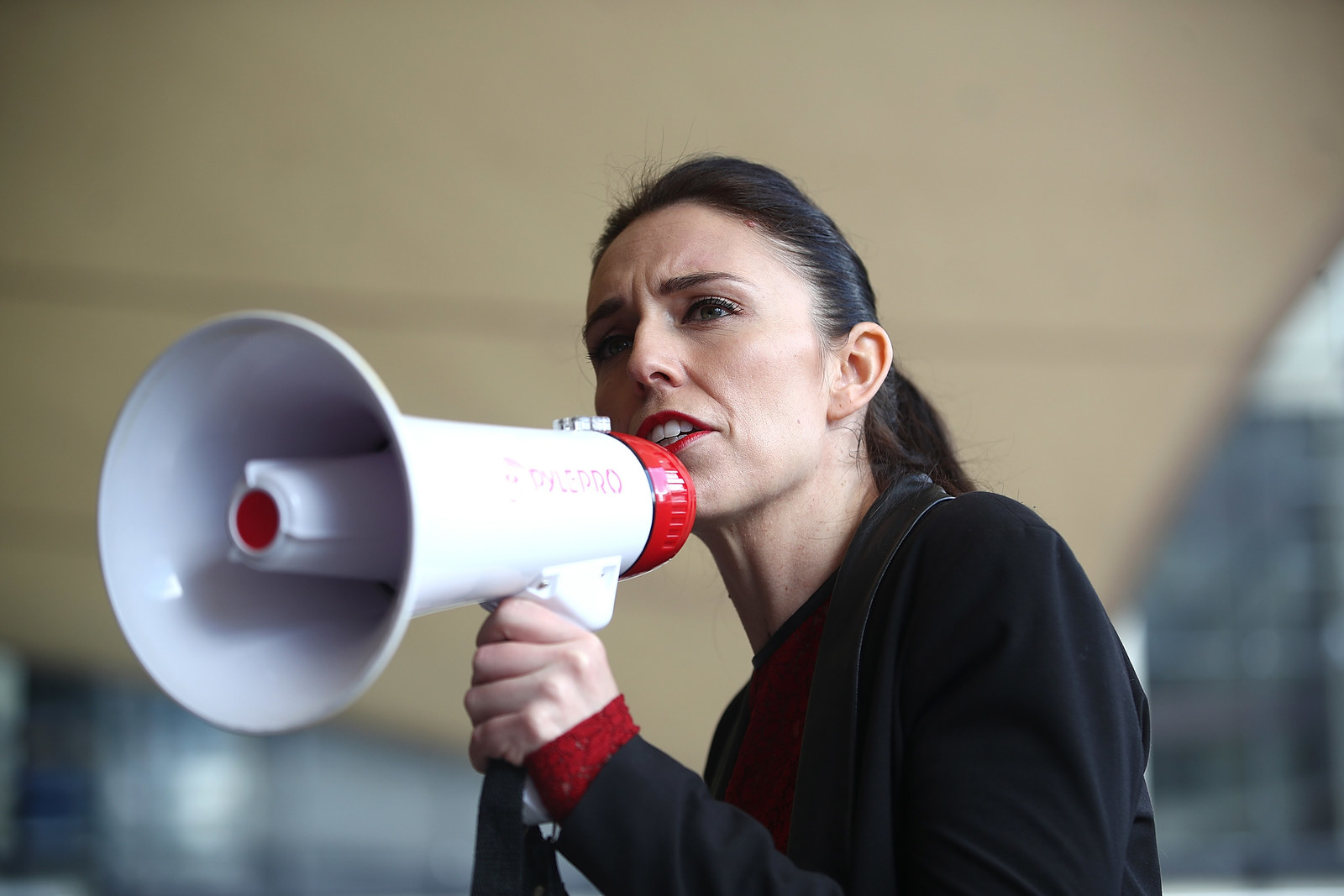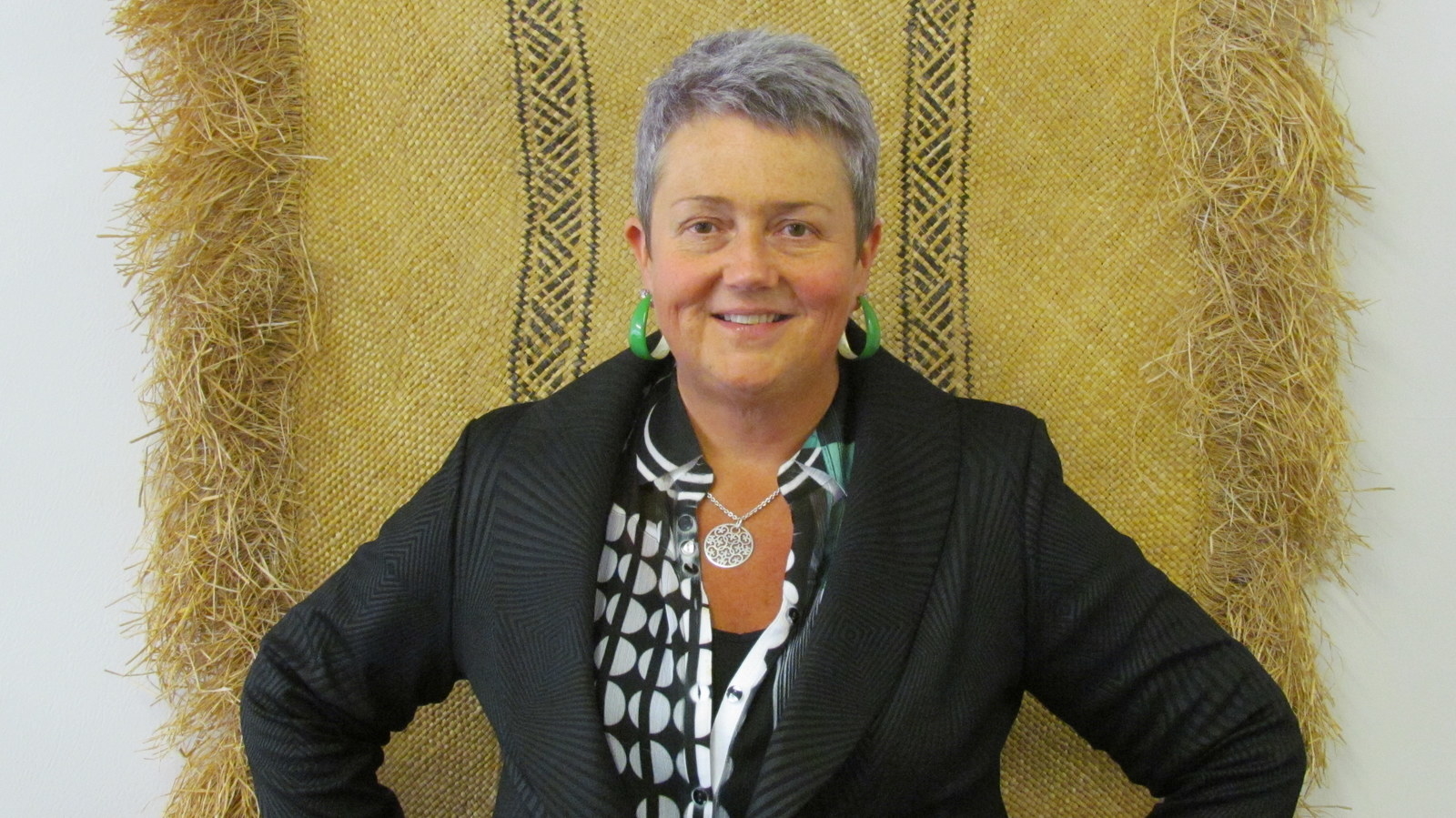"Because it is 2017," New Zealand's opposition leader Jacinda Ardern tells BuzzFeed News when asked why she'd take abortion out of the nation's criminal code if she wins at the polls on September 23.
The prime minister of New Zealand Bill English and Ardern, the Labour leader, were put on the spot about the issue of abortion during an election debate on Monday, ahead of this month's election.

"At the moment it is actually illegal under the Crimes Act to have an abortion... the main way women get it by saying that having a child is a serious danger to their mental health and that forces a lot of women to lie. Should we change that law?" Newshub political editor Patrick Gower asked Ardern.
"Yes. It shouldn't be in the Crimes Act," she responded to the raucous applause of the studio audience.
"People need to be able to make their own decision."
Gower asked the prime minister, a devout Catholic, whether he might change his mind on abortion like he had with the issue of marriage equality.
"No I wouldn't but I do support the law as it stands... I'd be opposed to liberalising the law," English said.
New Zealand's Abortion Supervisory Committee (three members appointed by the governor-general to oversee abortion provider licenses and reviews), has been asking for the law to be updated "to meet modern practice for some time", Ardern told BuzzFeed News.
"None of this means that abortion will be unregulated - but it does mean making sure that women have safe access," she said.
Abortion is currently only lawful in New Zealand in cases where the woman faces a danger to her life, physical or mental health, or if there is a risk of the fetus being "seriously handicapped" if the pregnancy continued.
There hasn't been a decriminalisation bill before New Zealand Parliament to date - "probably because abortion is a conscience issue which means every MP votes individually rather than along party lines", Ardern said.
"Everyone in parliament should vote according to their own beliefs, but I will ensure that the Ministry of Health and the abortion supervisory committee work through a bill that can go before parliament which would consolidate our abortion law, and remove it from the crimes act."
The Abortion Law Reform Association of New Zealand president Terry Bellamak said the Labour party had "read the tea leaves" on the issue of abortion as the association's poll earlier this year found a majority of Kiwis supported abortion being legal in all seven circumstances given to them from risk to the pregnant woman's life through to the pregnant woman not wanting to be a mother.
In a poll released shortly before the debate on Thursday, New Zealand Labour overtook the Nationals for the first time in 12 years, leading 43% to 41% according to the Colmar Brunton poll.

"We know the majority of the population supports abortion on request," Bellamak told BuzzFeed News.
"At the moment to get an abortion is an incredibly inconvenient thing... the Royal Commission that set up [the nation's advisory committee] was definitely not trying to make abortion on request they were trying to make it just available enough so that people wouldn't die of sepsis."
Around 98% of abortions over the past 40 years had been granted on mental health grounds, she said.
"Basically you rock up, you lie to the doctor, and they pretend to believe you."
Two "certifying consultants" (appointing doctors who oversee terminations) must sign off on the case and it must, by law, take place before 20-weeks gestation.
"The language of the law is offensive, it assumes all doctors are male and rape isn't a ground [on which a termination can be approved," Bellamak said.
"It takes, on average, 25 days between your first consultation and the time you actually get your abortion so it isn't working really well for a lot of people."
Unlike Australia, where a patchwork of disparate state laws mean terminations happen mostly in clinics and often at great cost to the patient, abortions are provided in New Zealand's hospitals and the cost is covered by the government.
"So if you're a seasonal employer or an international student, you'll pay thousands at a private clinic," Bellamak said.
The legal requirement that terminations happen in a hospital setting is difficult for women seeking medical abortions, particularly those in regional or rural areas, certifying consultant Dr Helen Paterson told BuzzFeed News.
"You might get your first pill and then you have to go home and you're likely to miscarry on the bus on the way home because of the time and distance and then you have to come back and take the second pill," Paterson said.
"In South Auckland, the poorest area of New Zealand, there are no abortion services so those women have to travel pretty far to get an abortion."
Decriminalisation wouldn't "magically fix" issues of access but it would improve access for medical abortions in rural areas, she said.
"We just don't provide equitable access to abortion because people will have to travel hours one way and back and so they might stay for a night or two at massive cost."

Jackie Edmond, chief executive of Family Planning New Zealand, said it was a "basic human right" to choose the "number and spacing of your children".
"We are a country that purports to be very strong on human rights," Edmond told BuzzFeed News.
"The real life impact on the ground of decriminalisation would be more flexibility in where and how services are provided so it could be done more in the community.”
